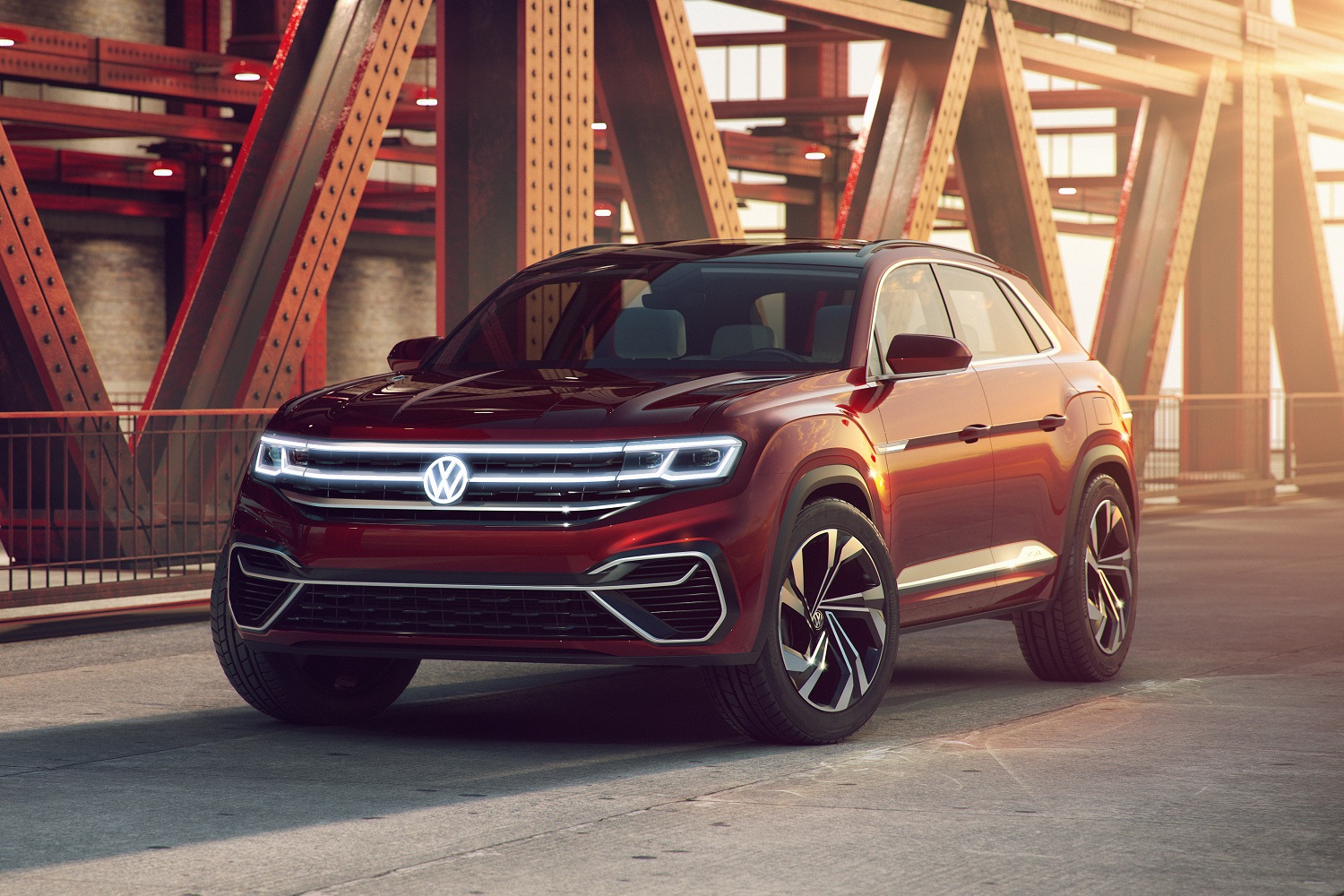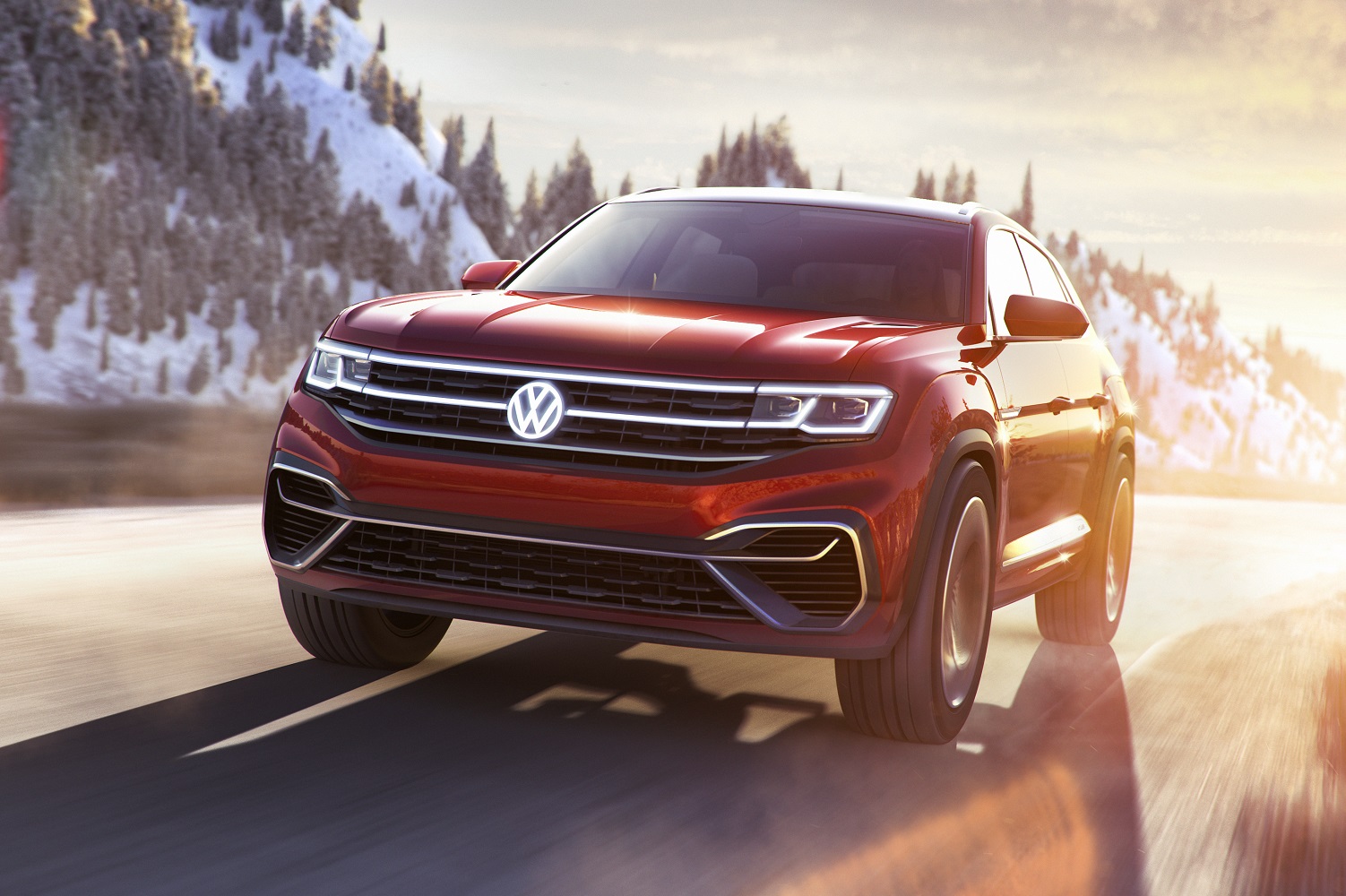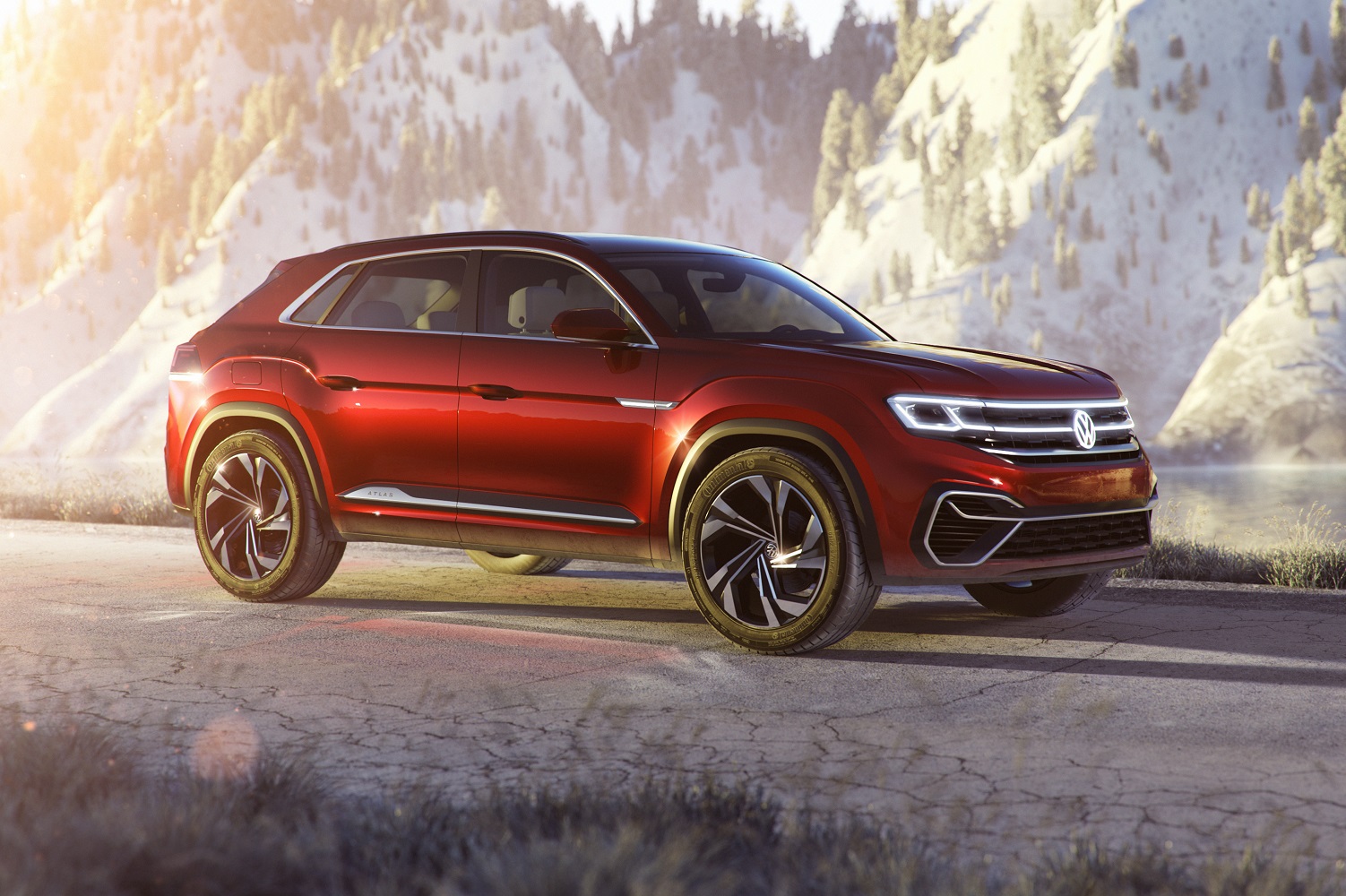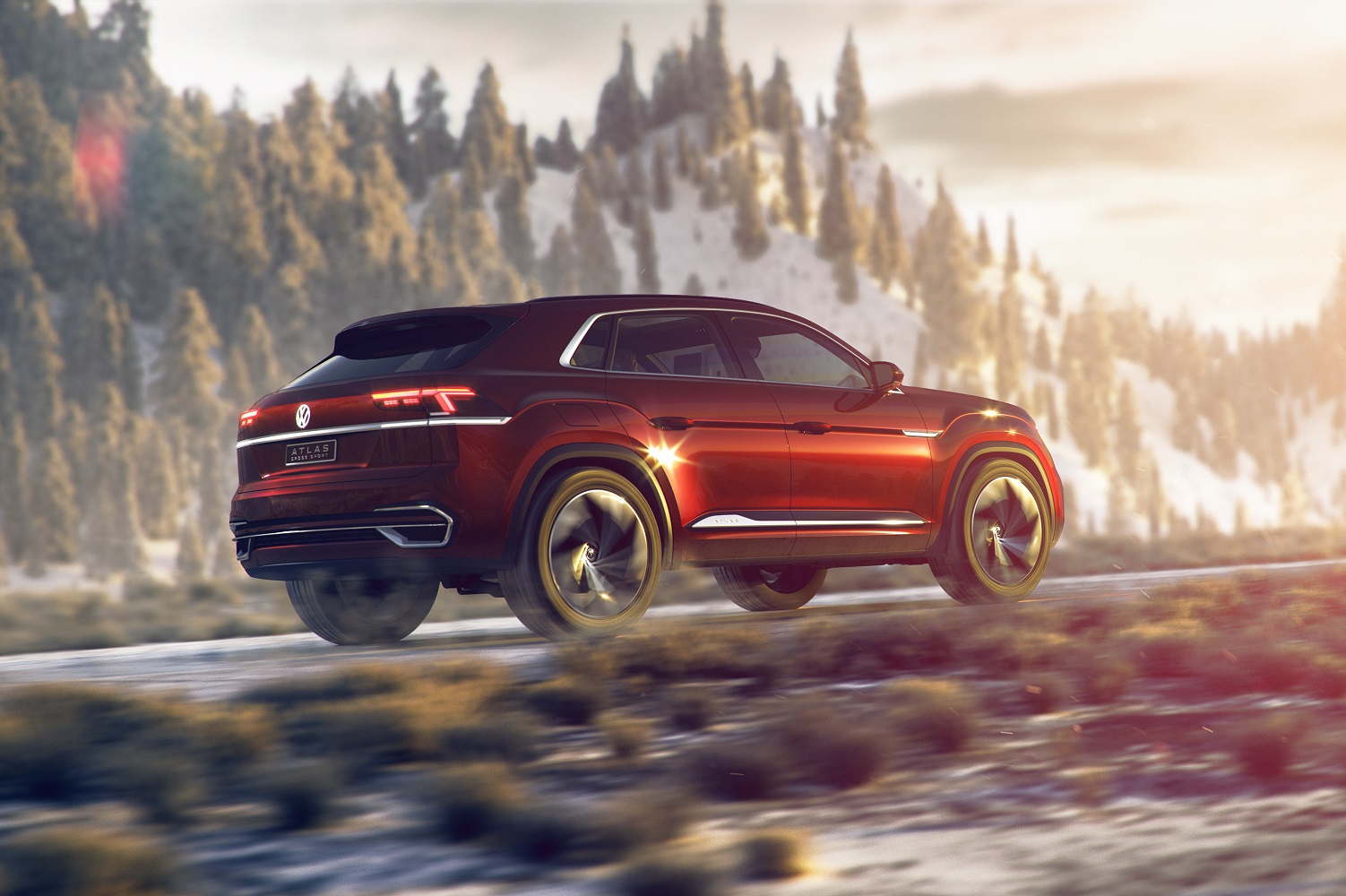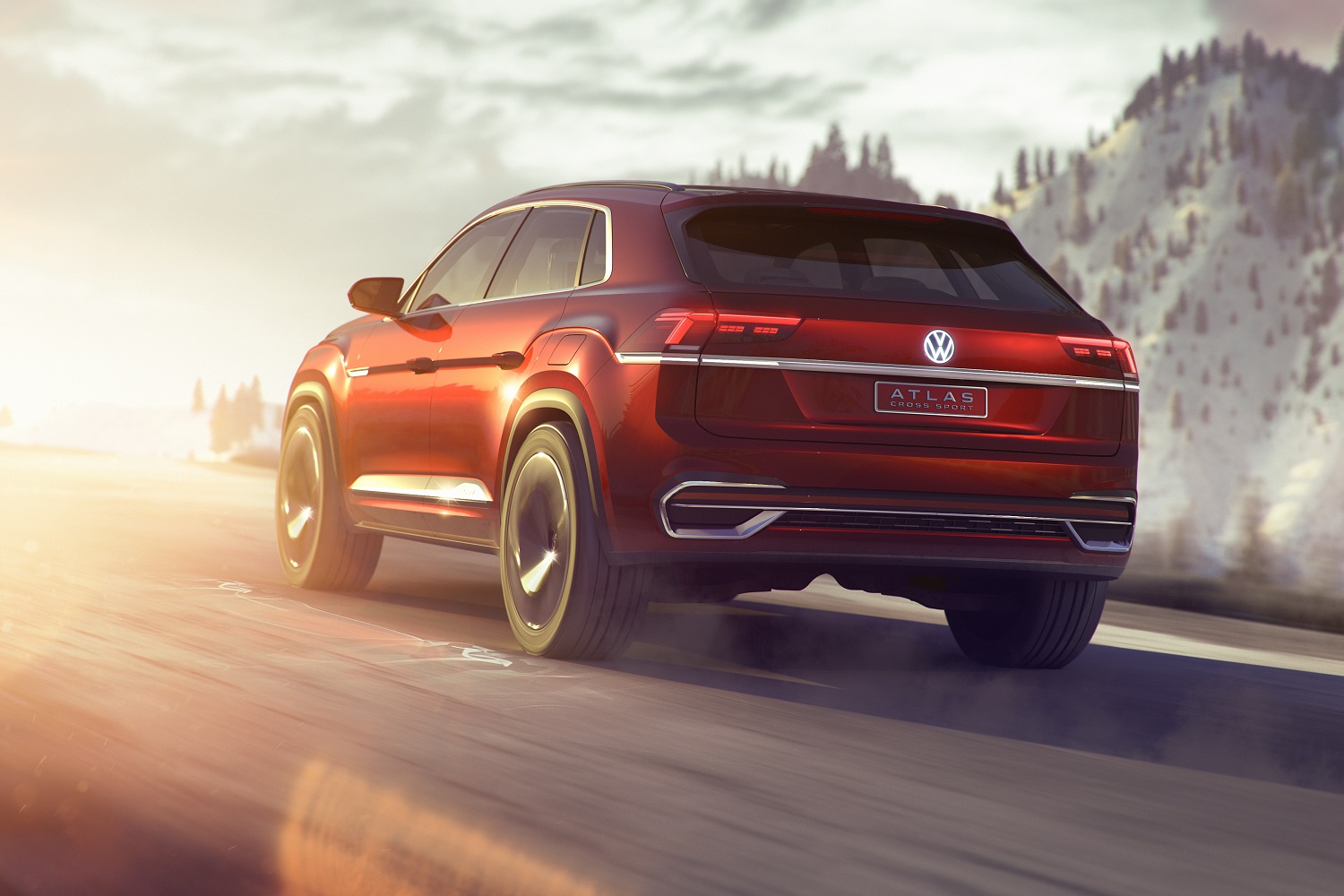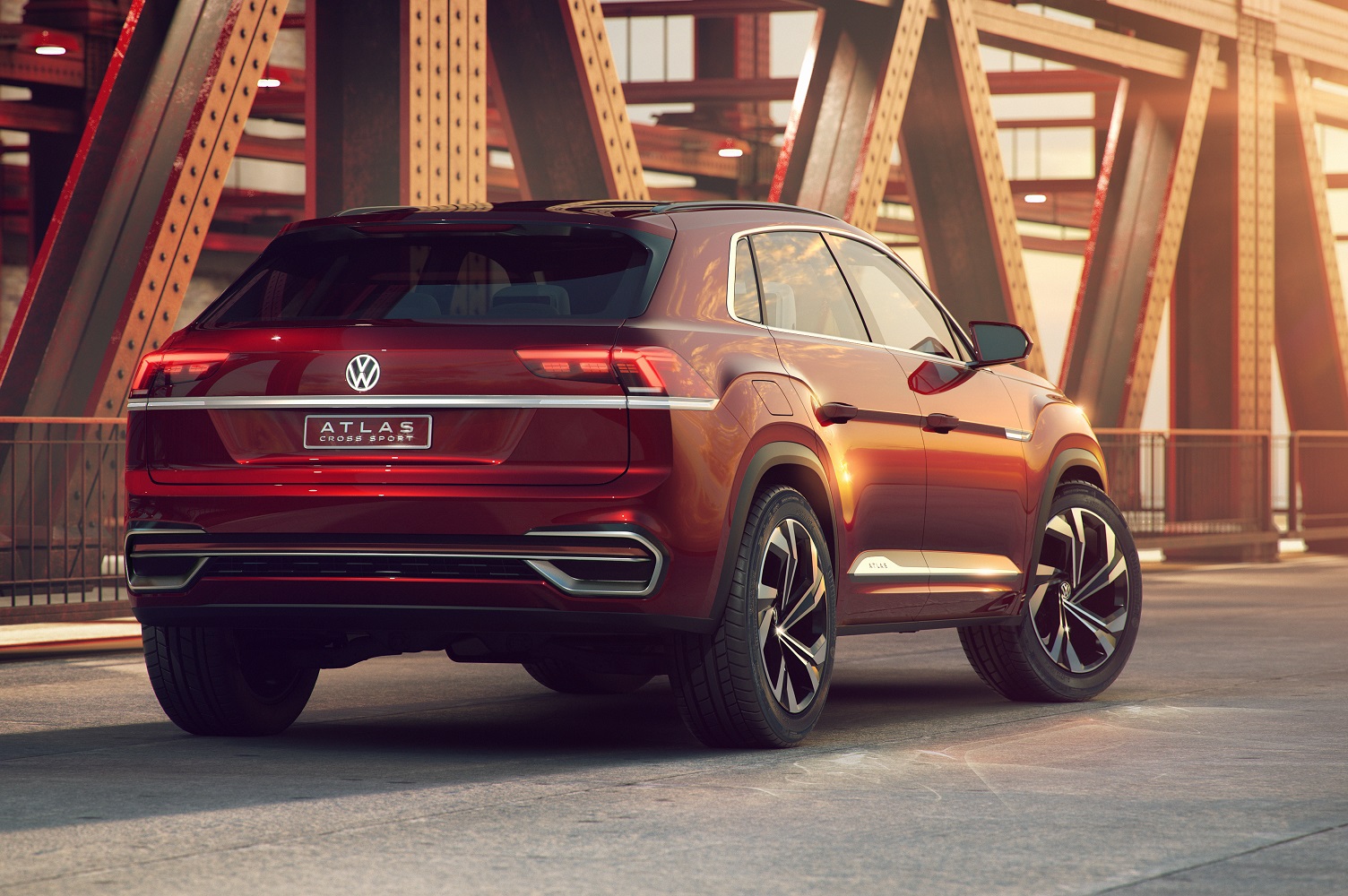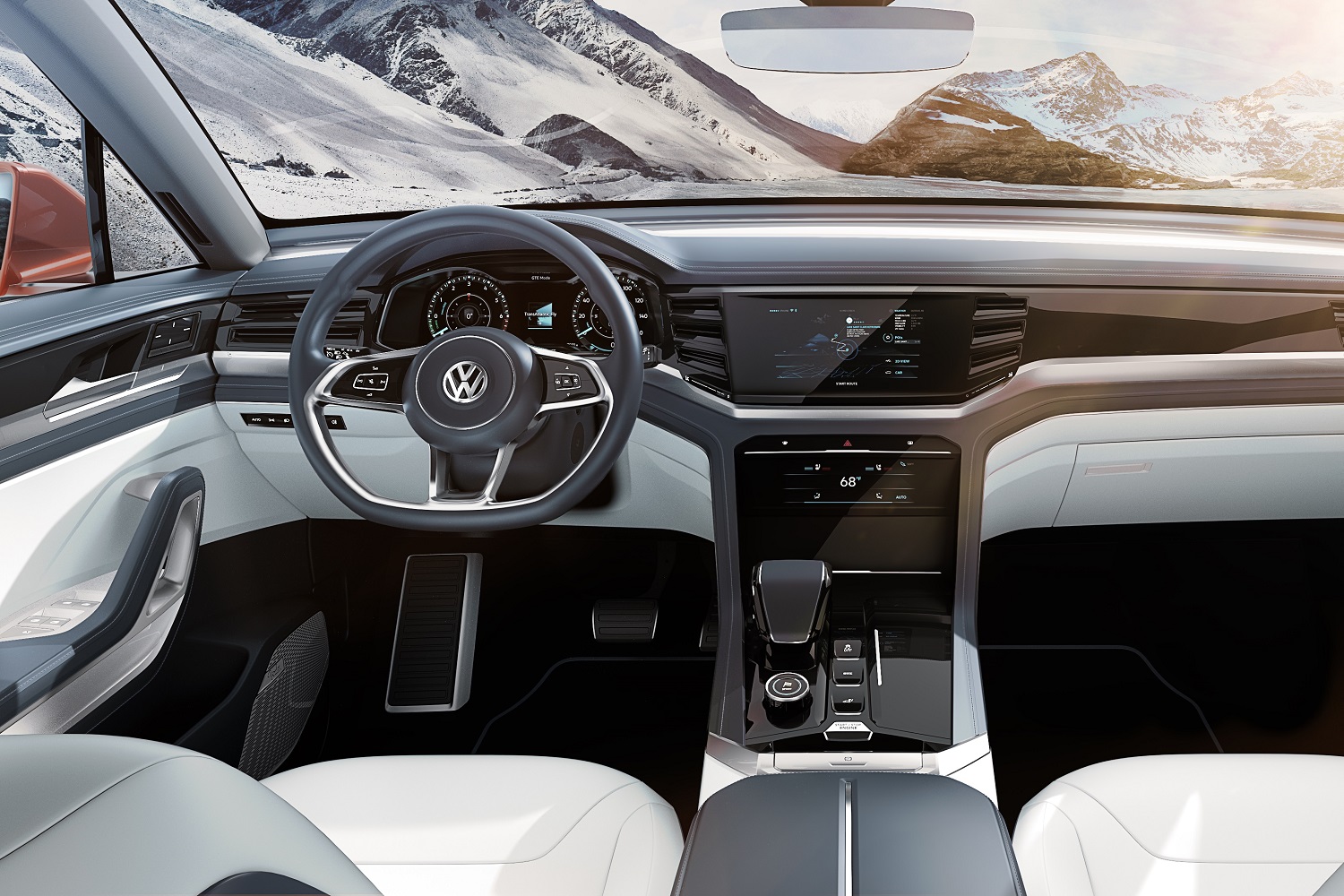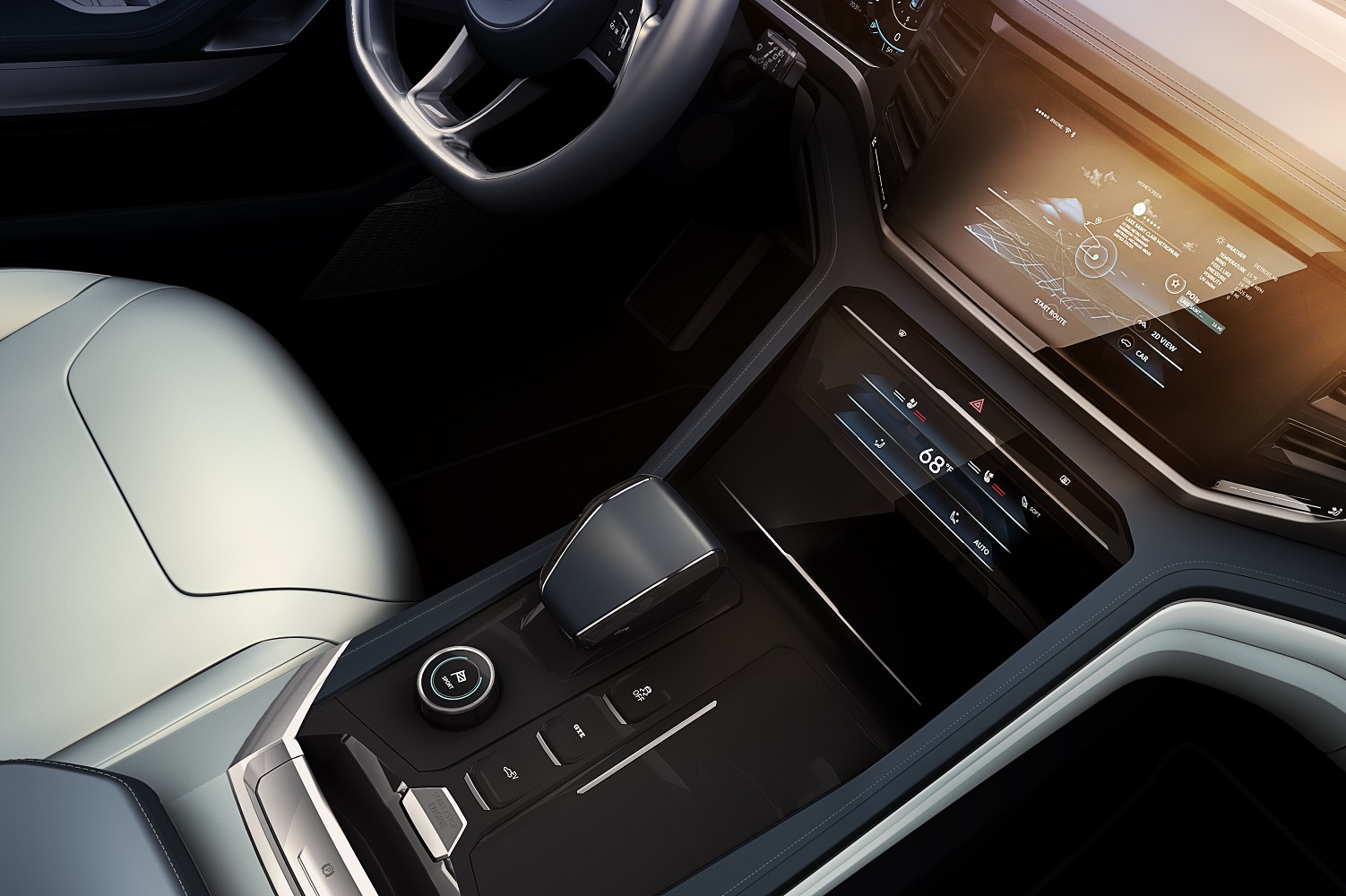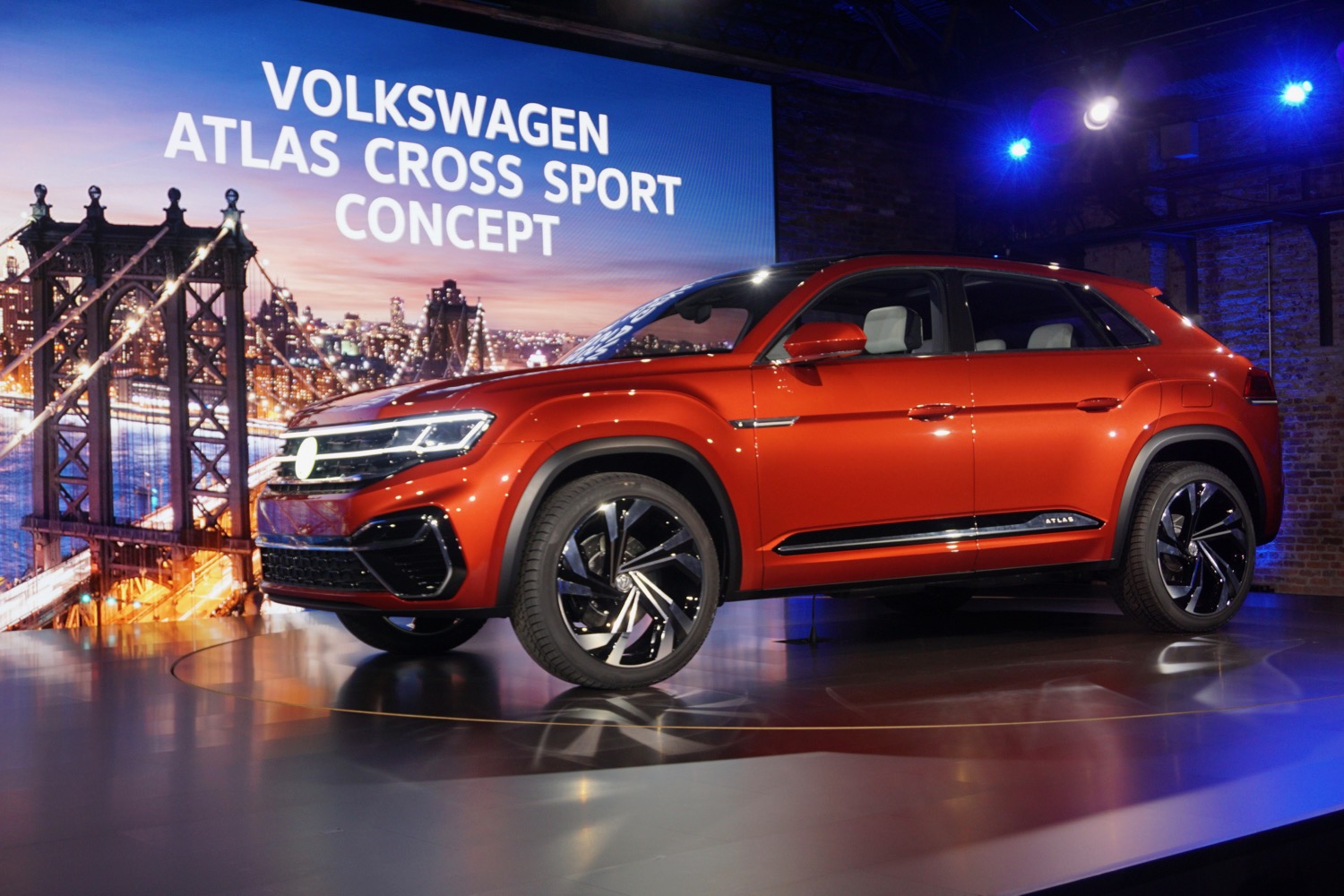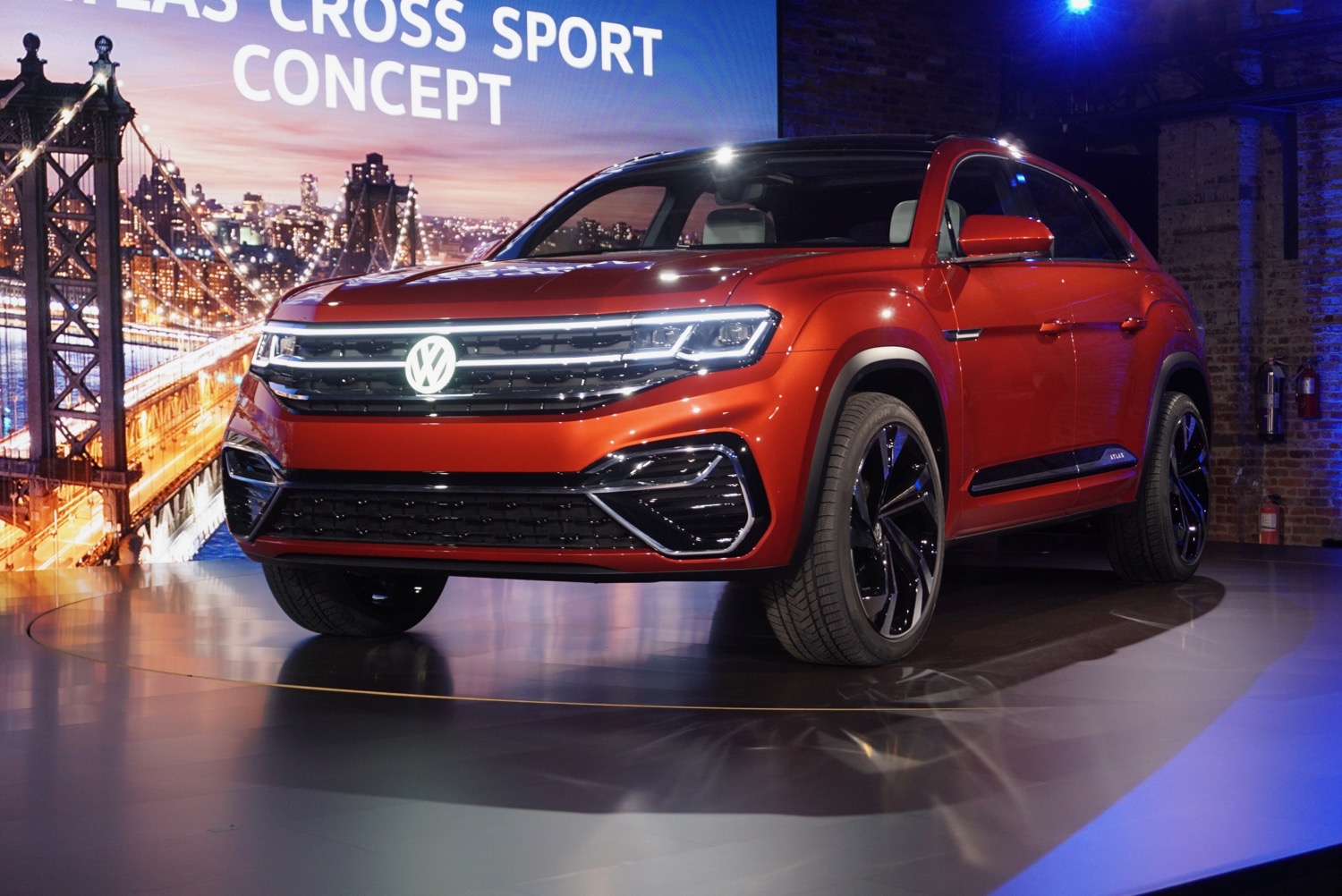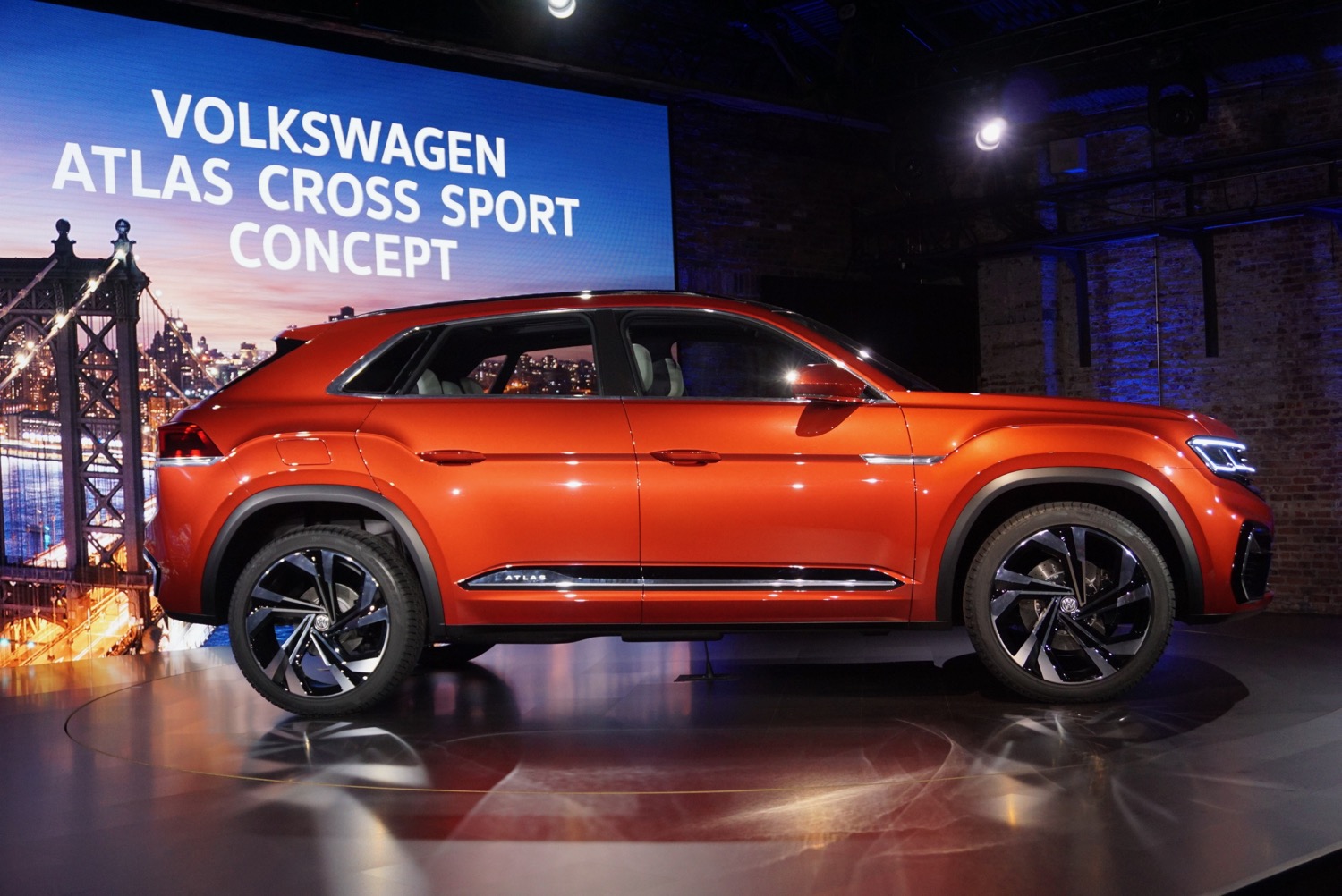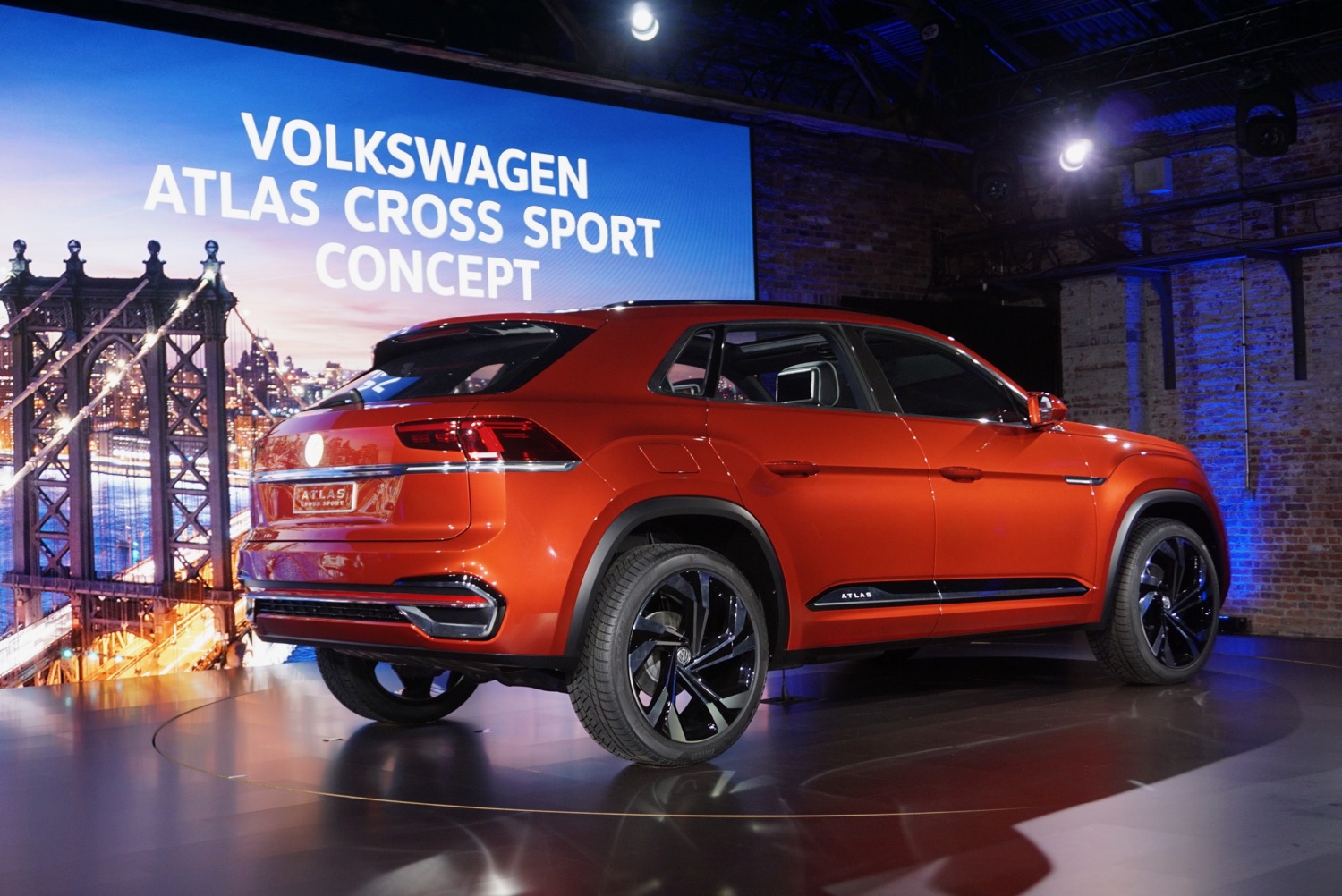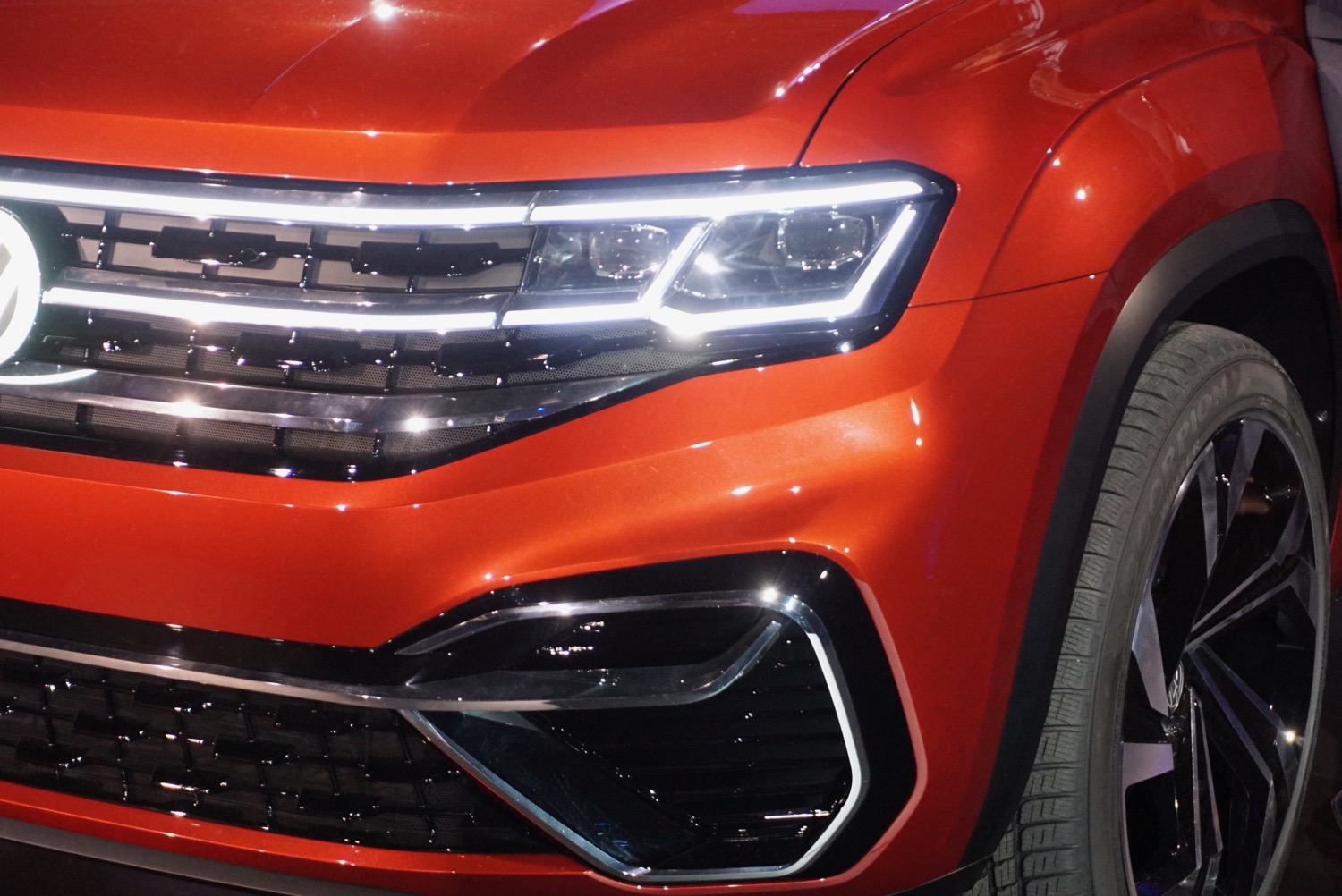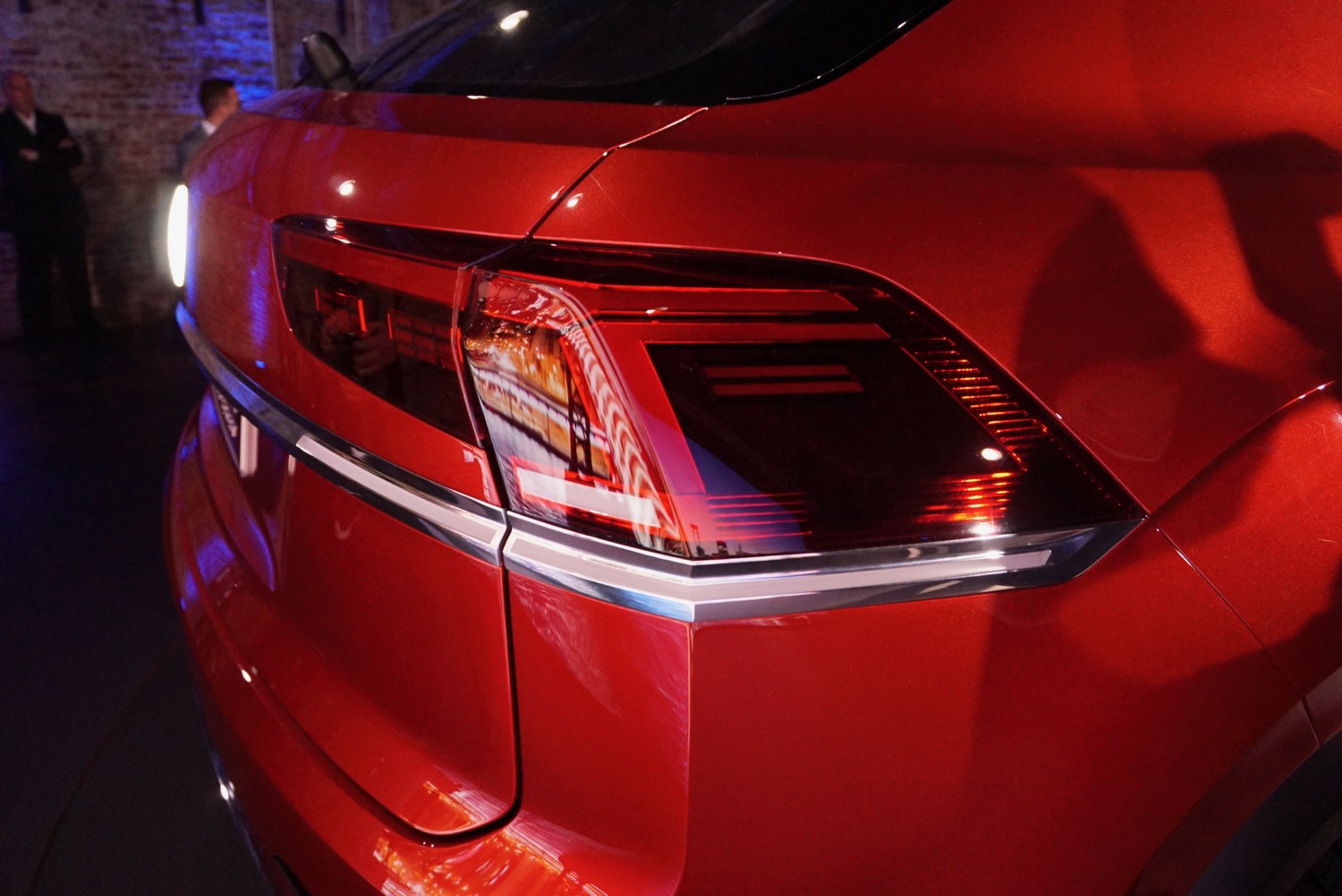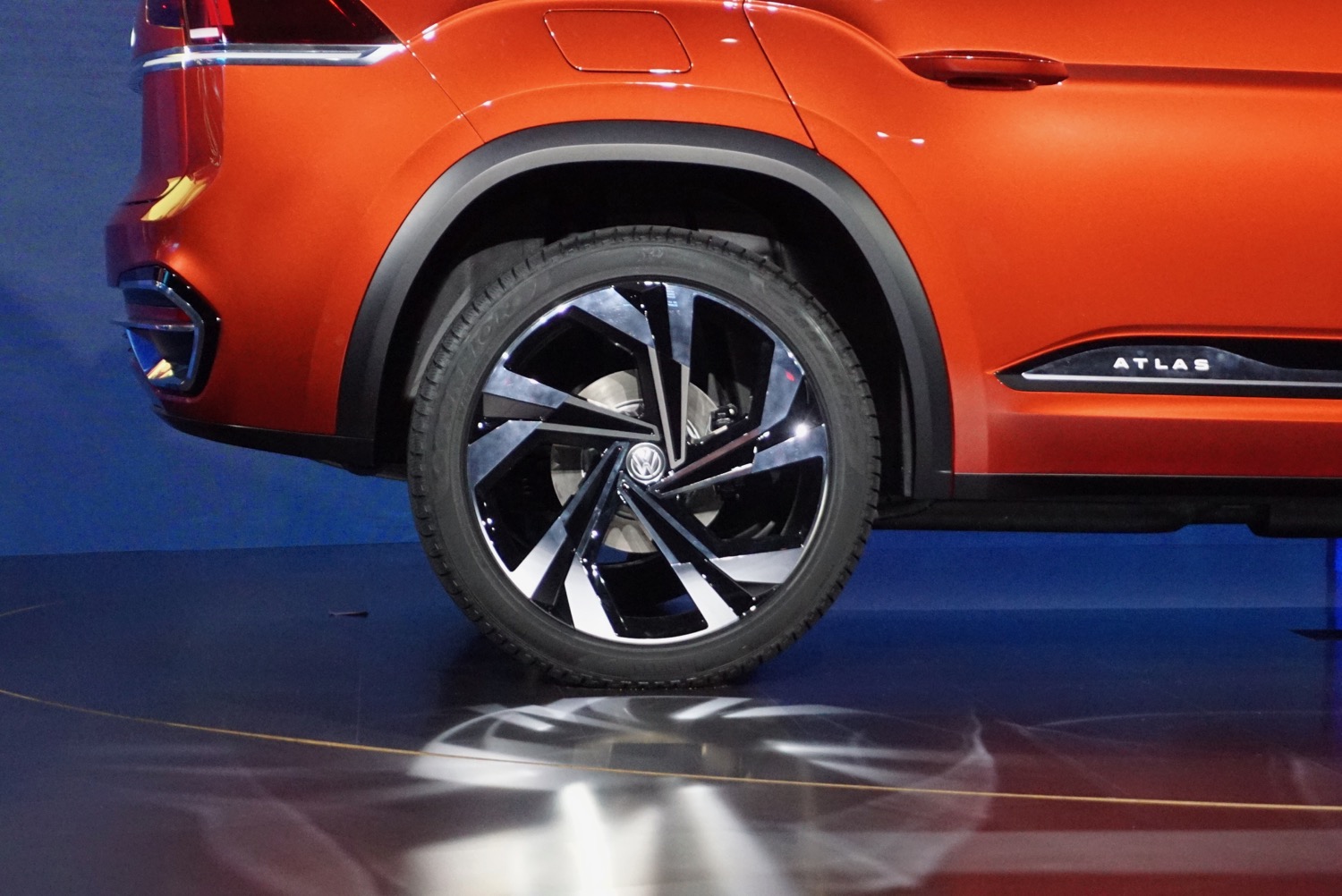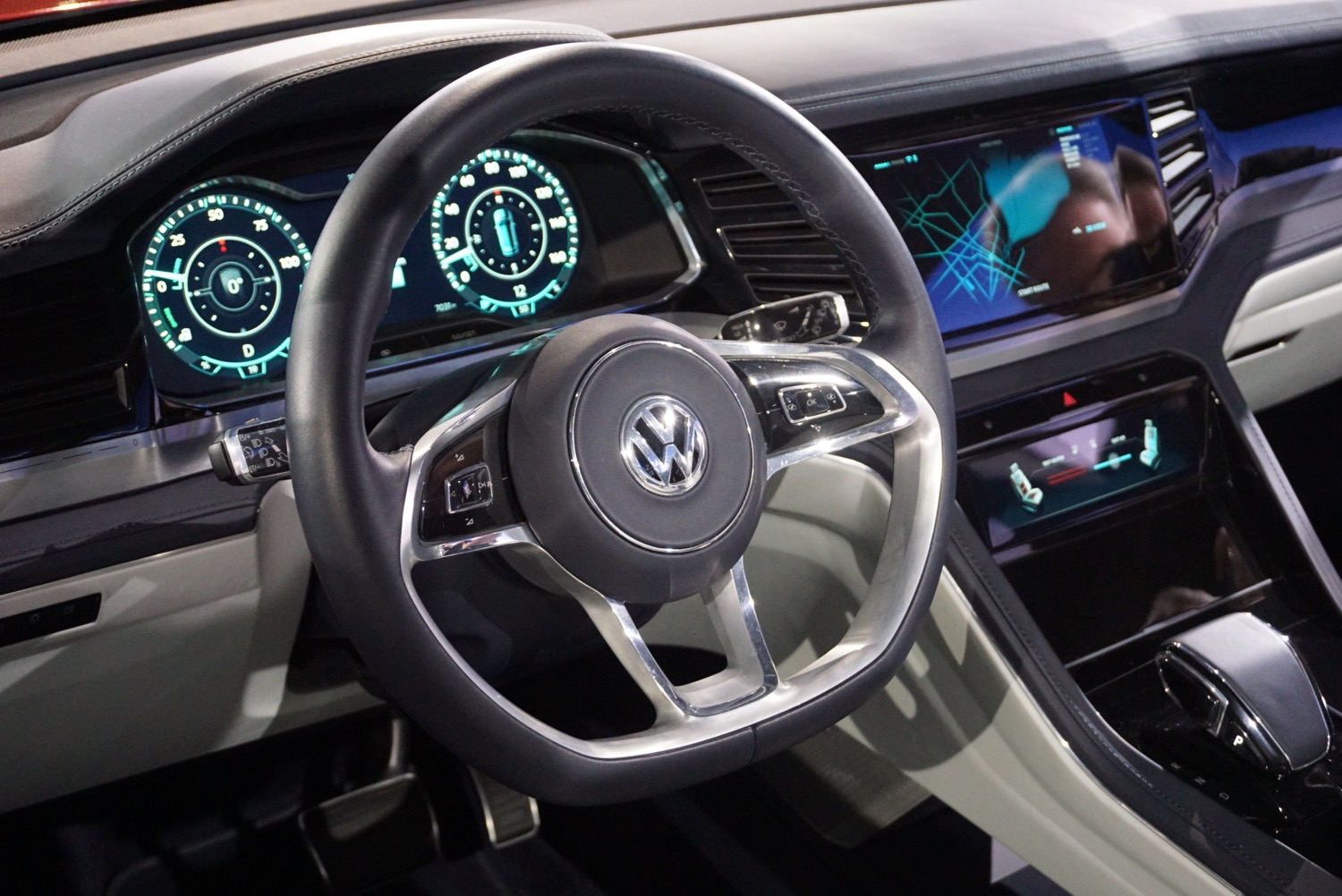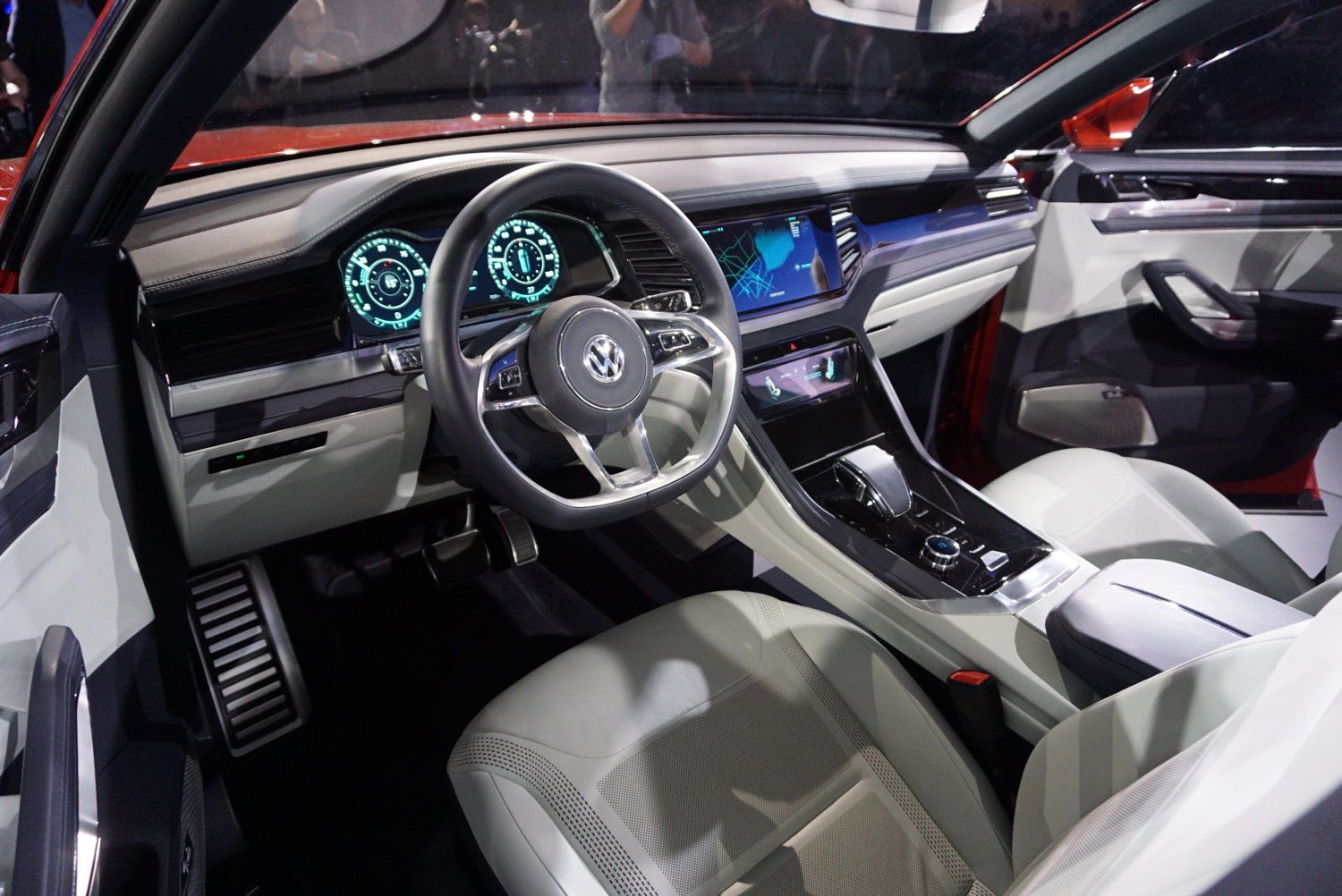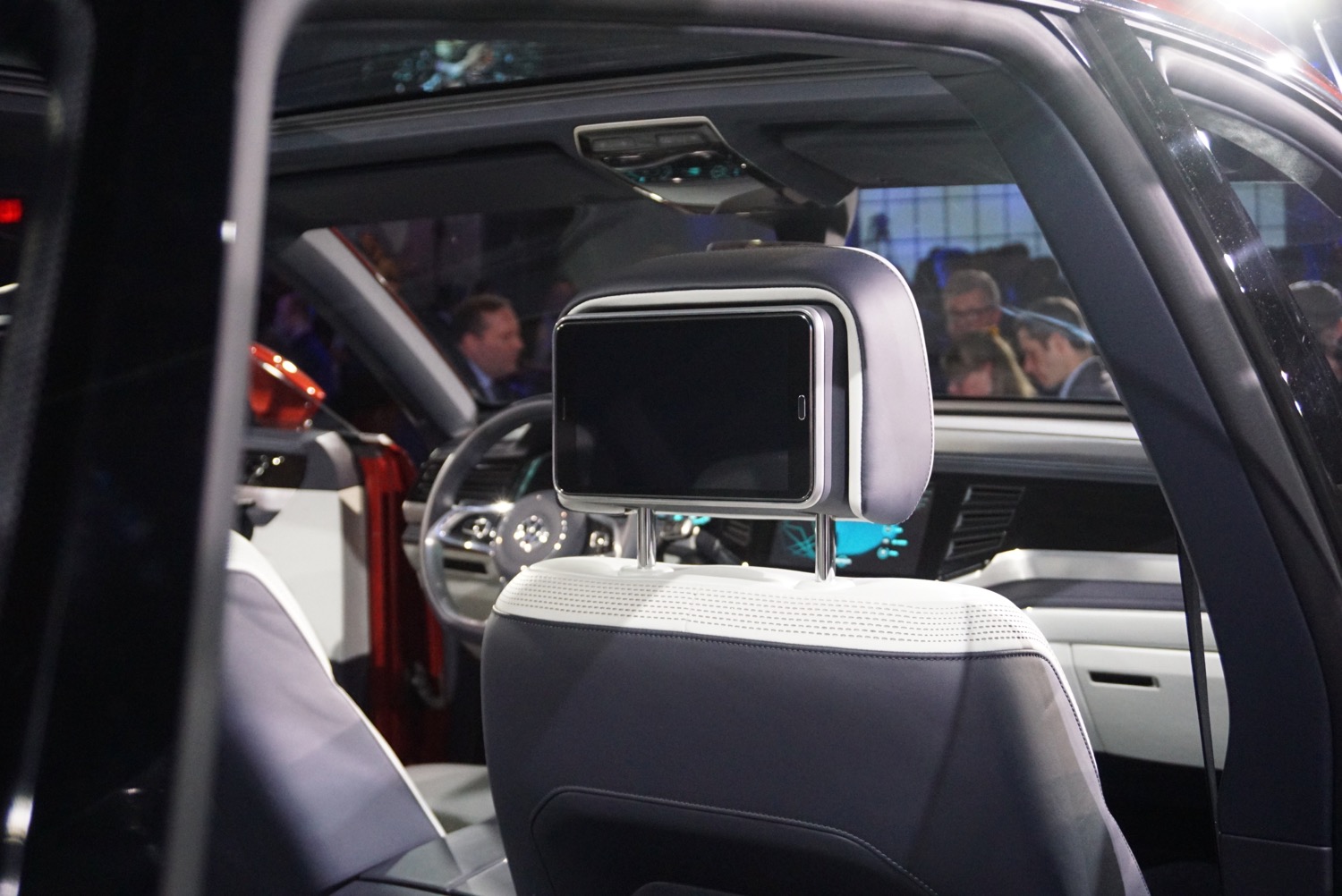Volkswagen has introduced a close-to-production concept named the Atlas Cross Sport on the eve of the 2018 New York Auto Show. The design study previews a smaller version of the Atlas with five seats instead of seven, and it represents the next step in the brand’s all-important SUV offensive.
Designed in America for Americans, the Cross Sport stretches 7.5 inches shorter than the three-row Atlas currently found in showrooms. The two SUVs share the same wheelbase because they both ride on Volkswagen’s shockingly modular MQB platform. The concept stands out from its bigger sibling thanks to a more high-tech design characterized by a light bar upfront and illuminated emblems on both ends. It also boasts a sportier silhouette accented by a fast-sloping D-pillar and a roof-mounted spoiler. Twenty-two-inch alloy wheels tucked under pronounced wheel arches add a muscular touch to the look.
Step inside and you’ll notice Volkswagen gave the Cross Sport three high-resolution screens, a setup similar to the one found in recent Audi models like the second-generation A7. The first one occupies the space right behind the steering wheel. It replaces the instrument cluster and displays vital information about the car and its surroundings including speed, range, and navigation data. The graphics change depending on the drive mode selected. The second screen shows the entertainment and connectivity options. It boasts proximity sensors and gesture control technology. The third groups the climate control functions.
Though Volkswagen stresses it’s still a concept, the Atlas Cross Sport most likely previews the next generation of the company’s infotainment technology. What you see here is what you’ll get in a few years’ time.
The Cross Sport uses a plug-in hybrid powertrain built around the stock Atlas’ 3.6-liter V6 engine, a unit that makes 276 horsepower on its own. In this application, it works with a pair of electric motors linked to an 18-kWh lithium-ion battery pack to send 355 hp to all four wheels though Volkswagen’s 4Motion all-wheel drive system. It performs the benchmark zero-to-60-mph sprint in a brisk 5.4 seconds. It’s also capable of driving on electricity alone for up to 26 miles.
What’s next?
Volkswagen doesn’t try to hide the fact that the Atlas Cross Sport is already well on its way to production behind the scenes. We’ll see a slightly toned-down version of the design study in showrooms at some point before the end of next year. The company hints the yet-unnamed model — “Atlas Cross Sport” most likely won’t make the cut — will offer a mild hybrid powertrain tuned to send 310 hp to the four wheels. The aforementioned V6 and a turbo four will round out the powertrain palette.
Atlas Cross Sport production will take place in Chattanooga, Tennessee, alongside the seven-seater Atlas and the Passat sedan. Though pricing hasn’t been revealed yet, we expect it will start below $30,000.
Updated: Added live photos
Editors' Recommendations
- Genesis Neolun concept is an electric SUV inspired by tradition
- Volkswagen ID.GTI concept is another icon reimagined as an EV
- Volkswagen ID.7 shows not every EV needs to be an SUV
- The Volkswagen Bus is back, and this time it’s electric
- 2021 Volkswagen ID.4 AWD first drive review: Gaining traction

